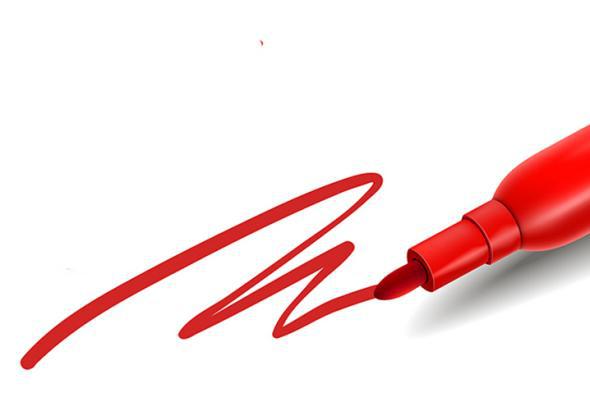Copy editors are a special, strange breed. We tend to hold strong opinions about peculiarities of the written word that the average person may never consider. Our job is to make sure sentences are as clean, concise, and readable as possible, and even one extra or misused word or punctuation mark can distract from the argument. So we sleuth out even minor offenses and take pride in catching them.
Some of those offenses are a matter of correctness and grammar; some are a matter of good taste and style. Despite the wishes of Vampire Weekend, it’s become in vogue to care about the Oxford, or serial, comma (which Slate endorses)—but there are many other, more obscure quirks of the English language that can get us copy editors equally worked up.
We’ve compiled some of the biggest pet peeves of the Slate copy desk. Here’s what drives us crazy—Slate writers, take note!
Pet Peeve: Impactful
Example: “Though the bildungsroman is a shopworn genre, every year a gem emerges with heretofore unseen insight, and the whole coming-of-age experience becomes new and bracing and impactful again.”
Why It Irks Me: Fairly or not, impactful oozes with corporatese; it sounds birthed of branded marketing synergy and strategizing PowerPoints. (That said, this fascinating blog post from the University of Pennsylvania shows how impactful’s tendrils reach far beyond boardrooms.) More importantly, impactful irks because it’s a vague, artificial construction that’s often used when a clearer, more natural-sounding option exists. Some people use impactful to mean effective, as with a strategy that gets results. Others mean influential, like a politician’s campaign or ideas, or a book that inspired someone as a teen. Others still use impactful when they mean moving or affecting, as with a song that makes them emotional. Impactful is needlessly confusing because those alternatives are more expressive and less contrived.
—Seth Maxon
Pet Peeve: Using entitled as a synonym for titled
Example: “Have you read the new Jonathan Franzen book entitled Purity?”
Why It Irks Me: As much as I like to think of my books as my friends, that’s not what Simon and Garfunkel meant when they sang about being protected by them. Books aren’t people. Neither are movies. They can’t have feelings of entitlement. You can, but that doesn’t entitle you to use the wrong word.
—Miriam Krule
Pet Peeve: Oddly stylized proper nouns
Example: “Godspeed You! Black Emperor and moe. were among the performers.”
Why It Irks Me: The stylization of proper nouns in English should be among the easiest rules to master, but some people—particularly those in bands—feel the need to express their artistic sensibilities by offending our eyes. Shouting at me (AWOLNATION); adding unnecessary punctuation (Portugal. The Man.); or doing whatever KoЯn, !!!, and tUnE-yArDs are trying to accomplish only makes for confused readers and angry copy editors. As a music geek who trades in grammar for a living, I beg you: Please stop. And yes, I know this makes me no fun.
—Meg Wiegand
Pet Peeve: Pronoun disagreement
Example: “It’s as if Apple had turned around after the nude-photo breaches and increased their iPhone fees for new, unspecified ‘security features.’ ”
Why It Irks Me: Pronouns should be pretty straightforward, especially when questions of gender aren’t at issue. It for singular nouns, they for plural. But somehow when a company or government or other large entity gets involved, those singular entities are transformed into an anthropomorphized herd of suited technocrats. Apple may hold the cash reserves of a small country and its products may be ubiquitous, but it’s still just one company.
—Abby McIntyre
Pet Peeve: Using woman as an adjective
Example: “Women managers are less likely to be promoted than their male counterparts.”
Why It Irks Me: We have an adjective for woman—it’s female. Would anyone ever say “a man CEO” or “a man doctor”? No, they’d say “a male CEO” or “a male doctor.” The example above even has the gall to compare “women” managers with “male” counterparts in a single sentence. How does that even make sense? A 2007 New York Times article quotes linguist Robin Lakoff as saying “The use of either woman or female with terms such as ‘president, speaker, doctor, professor,’ suggests that a woman holding that position is marked—in some way unnatural, and that it is natural for men to hold it.” So using woman as an adjective is not only incorrect, it’s sexist.
—Miriam Krule
Pet Peeve: The phrase tweeted out
Example: “Kanye West triumphantly tweeted out nude photos of his wife, Kim Kardashian.”
Why It Irks Me: I don’t have any problem when things famous people tweet, like Kanye’s Kim Kardashian photos or Jeb Bush’s new ¡campaign logo!, make news. I do have a small quibble with news items based on tweets, however: the phrase tweeted out. Is there any other way to tweet? Can you … tweet in? I’m hard-pressed to think of a single occasion when simply tweeted wouldn’t do, and unnecessary words are an affront to copy editors everywhere.
—Heather Schwedel
Pet Peeve: Over hyphenation
Example: Over-hyphenation
Why It Irks Me: Some call it “hyphenitis,” but what’s really inflamed is my passion! Oh, thank you, writer, for typing “real-estate agent.” Otherwise the reader might have thought you meant an estate agent who was in fact real. And thanks again for specifying “gay-marriage law.” We’ve seen too many other publications wrecked by the controversy of forgetting that hyphen and thereby calling a marriage law gay.
—Ryan Vogt
